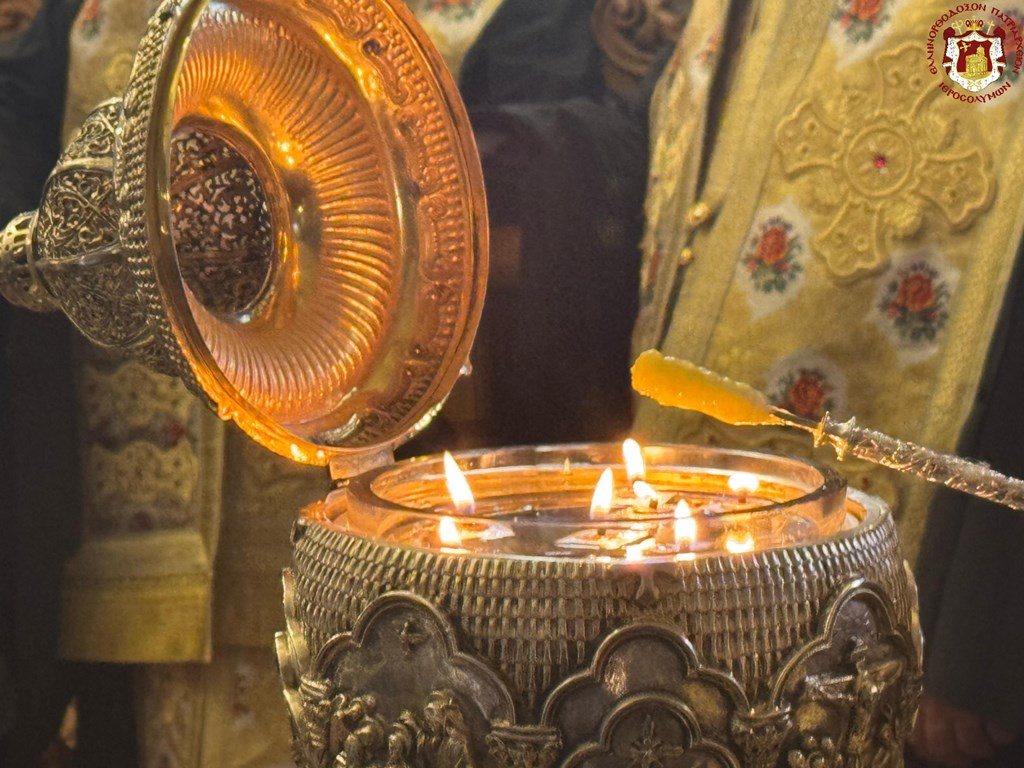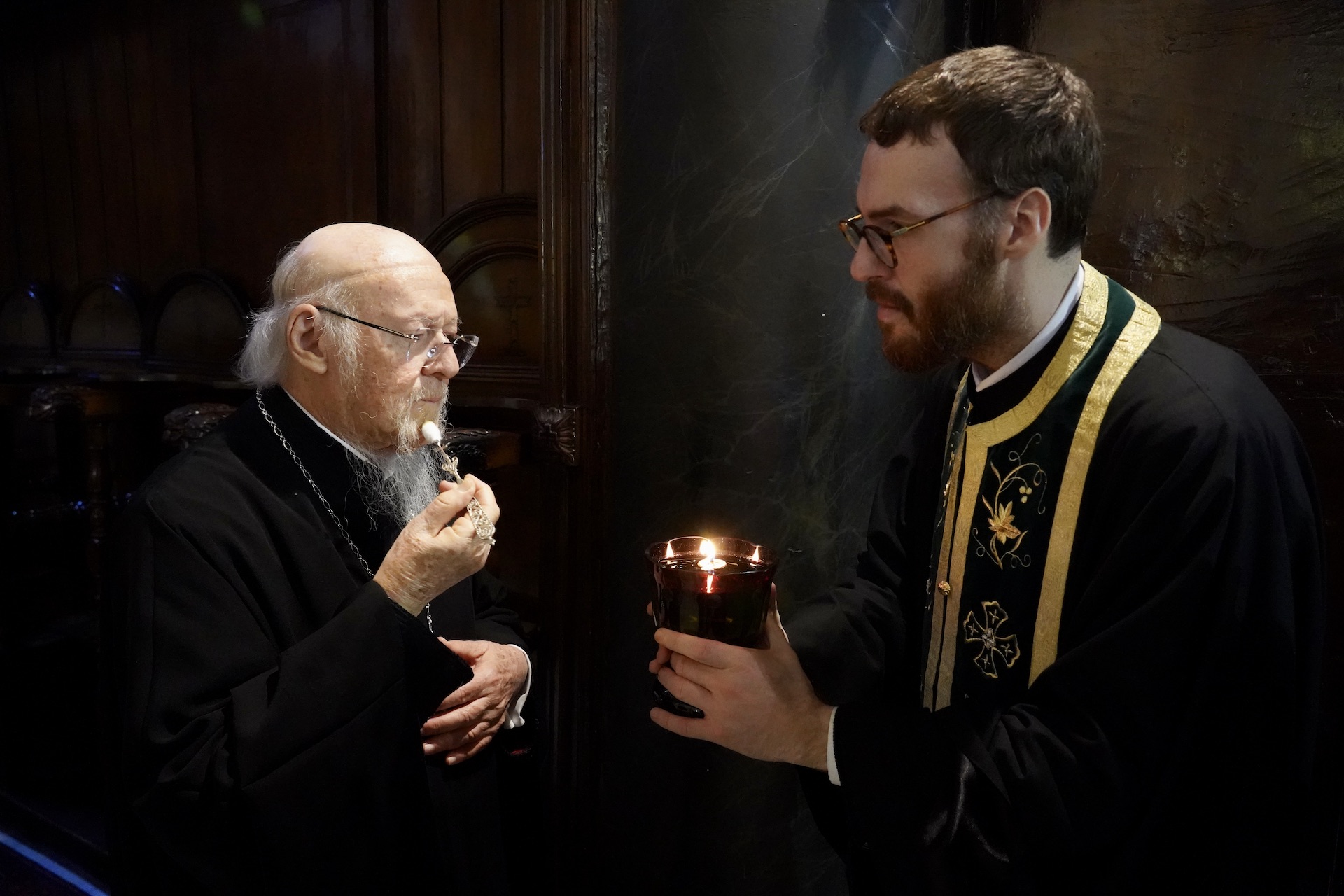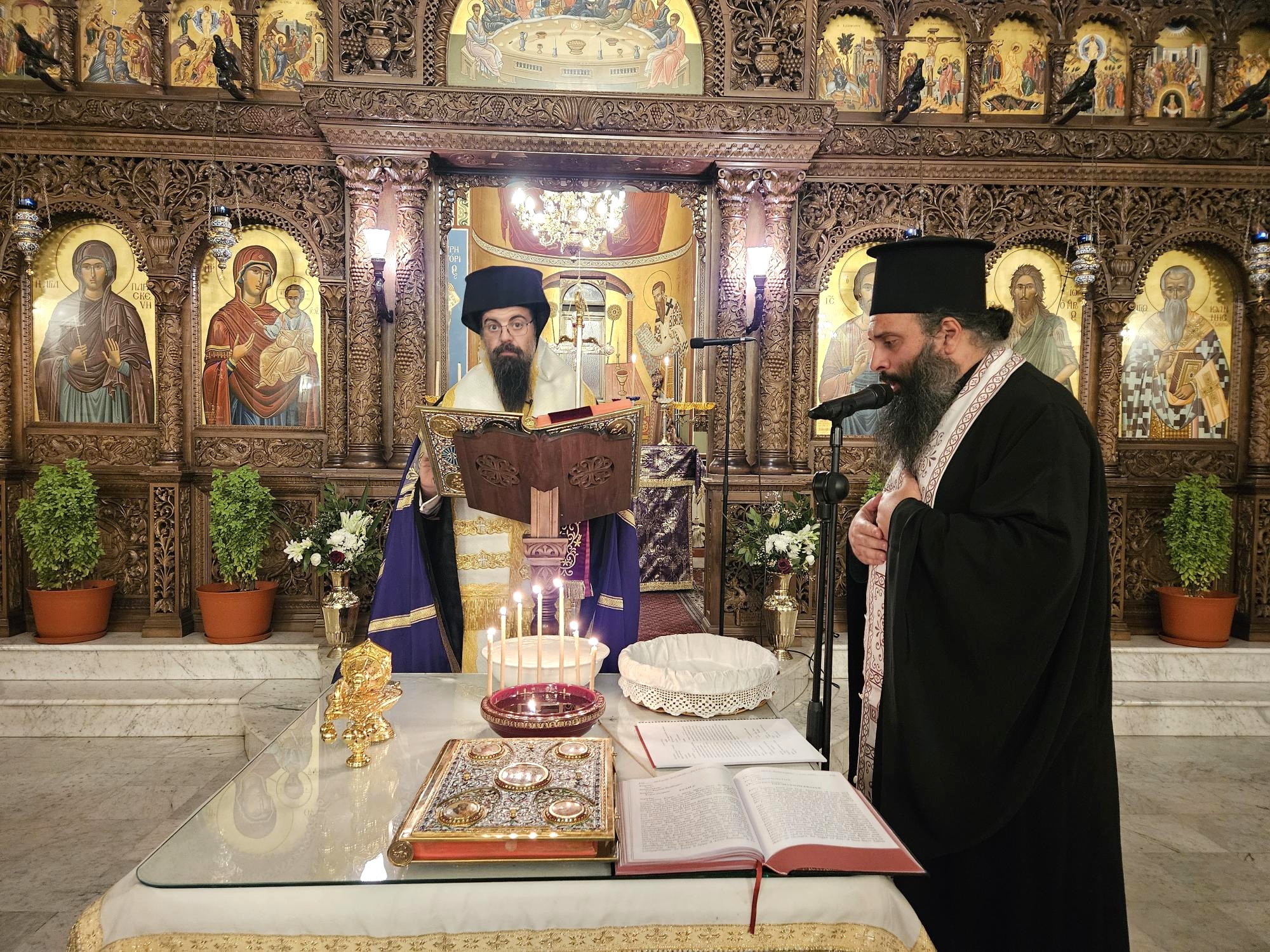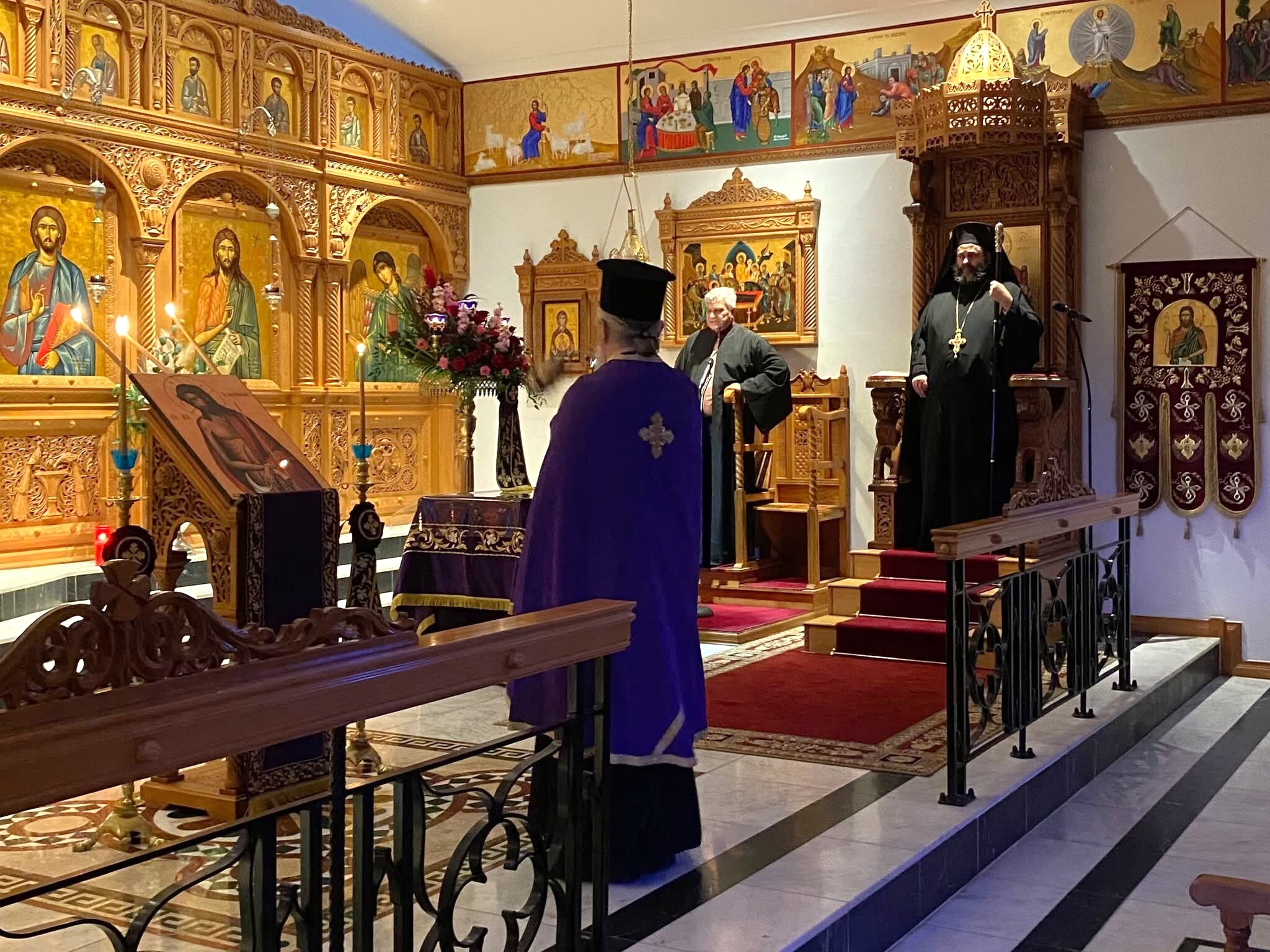Prophet Baruch (28 September)
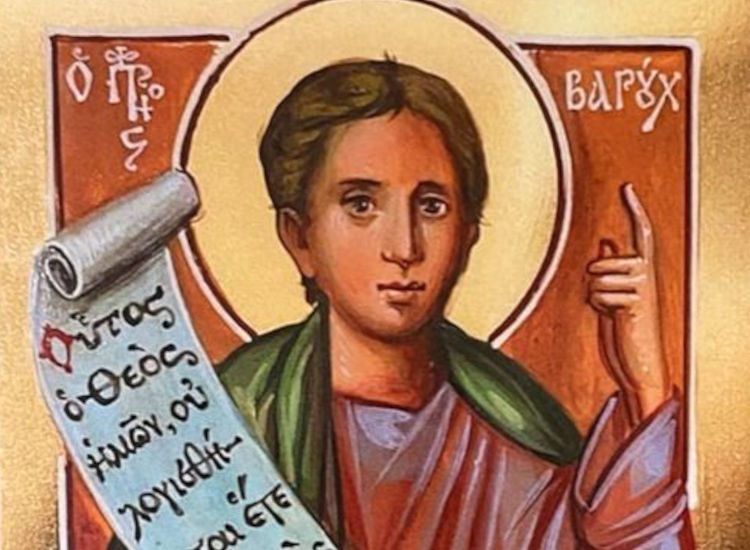
The Holy Prophet Baruch (his name means “blessed”), that courageous lover of truth, lived in the VII century B.C. He was the son of Nerias and the devoted follower and divinely-inspired secretary of the Prophet Jeremiah (May 1).
When Jeremiah was imprisoned, Baruch wrote down the prophecies which he dictated (Jeremiah 36:4), ordering him to read them to the people. When King Joachim was informed of this, instead of benefitting from the Prophet’s admonitions, he threw the scroll into the fire. Baruch was also imprisoned because the Jews hated him for loving truth, and for his courageous language. When the Jews fled to Egypt in fear, because of their stand against the king of Babylon, Baruch accompanied Jeremiah. Rabbinic tradition suggests that Baruch returned to Babylon after he witnessed Jeremiah’s death by stoning and buried his body.
In his prophetic book, Baruch clearly foresaw the Incarnation of the Lord Jesus Christ. The section from 3:9 to 4:4 is a beautiful description of the Divine Wisdom “Who showed Himself upon earth and conversed with men.”
Here is what he said: “This is our God, and no other shall be compared to Him. He has found out all the way of knowledge, and has given it unto Jacob His servant, and unto Israel His beloved. Afterward He showed Himself upon earth, and conversed with men” (Baruch 3:36-38).
These words are read on the eve of the Nativity of Christ at the Third Hour, and are ascribed to the Prophet Jeremiah.
Saint John Chrysostom says, in the sixth of his Baptismal Instructions, “Here the Prophet is speaking about the Son. Of Whom does the Prophet speak? He does not say this about the Father, does He? Of course not.” Saint John goes on to explain that Baruch was the first to say that God would become Man, yet remain as God. Christ is not only the Law-giver of the Old Testament, but also the Divine Wisdom, Word, and Power of God.
The Prophet Baruch is quoted or paraphrased several times in the Divine Services of the Church. On Palm Sunday we sing: “This is our God, and there is no other like Him…. He has shown Himself upon earth and lived among men. Blessed is He Who comes in the name of the Lord our Savior” (Canon at Matins Tone 4, Ode 9).
On the Great Feast of Theophany we hear: “The Godhead has appeared in the flesh to the dwellers upon earth” (Matins of the Forefeast, Aposticha Tone 2).
On the Feast of the Lord’s Transfiguration we sing this hymn to the Most Holy Theotokos: “Your giving birth was undefiled; God came forth from your womb, and He appeared upon earth wearing flesh and made His dwelling among men; therefore, we all magnify you, O Theotokos” (Canon at Matins Tone 4, Ode 9).
Again, on the Transfiguration, we extol the All-Holy Virgin: “Every ear trembled with fear at hearing of the ineffable condescension of God: how the Most High of His own will came down even unto the flesh, and was made Man from a virginal womb. Therefore, we faithful magnify the undefiled Theotokos” (Second Canon at Matins Ode 8, Irmos).
The Prophet Baruch also prophesied the return of the Jews from the Babylonian Captivity, and Babylon’s desolation. He is depicted in iconography as an old man with a rounded beard.
The Book traditionally ascribed to Baruch is regarded by Protestants as non-canonical, but is accepted by the Orthodox Church, and also by Roman Catholics.
The Prophet Baruch was the son of Nerias, and the disciple of the Prophet Jeremias ( Jer. 39:12; 43:4 LXX). The extant prophetical book that he wrote is divided into five chapters; it was composed in the fifth year of the Babylonian Captivity of the Jews during the years of Sedekias, 583 B.C. The prophetic lection that is read on the eve of the Feast of Christ’s Nativity, which bears Jeremias’ name, is taken from the prophecy of Baruch (Bar. 3:35-4:4). His name means “blessed.”
He was a disciple and faithful friend of the great prophet Jeremiah. He prophesied the return of the Jews from the Babylonian Captivity, the destruction of Babylon, and the coming of the Son of God to earth. It is held that he was slain by the Jews in Egypt, as was the Prophet Jeremiah, in the seventh century before Christ.
Apolytikion of Prophet Baruch
Fourth Tone
Thou didst foretell the Lord’s divine Incarnation when thou didst cry out to the whole world, O Prophet: This is our God, there shall be none compared to Him; He was seen upon the earth, being born of a Virgin: He hath shone upon our souls the divine light of knowledge. And He doth grant salvation unto all who sing thy praise, O divinely-inspired Baruch.
Source: oca.org / goarch.org / westserbdio.org


